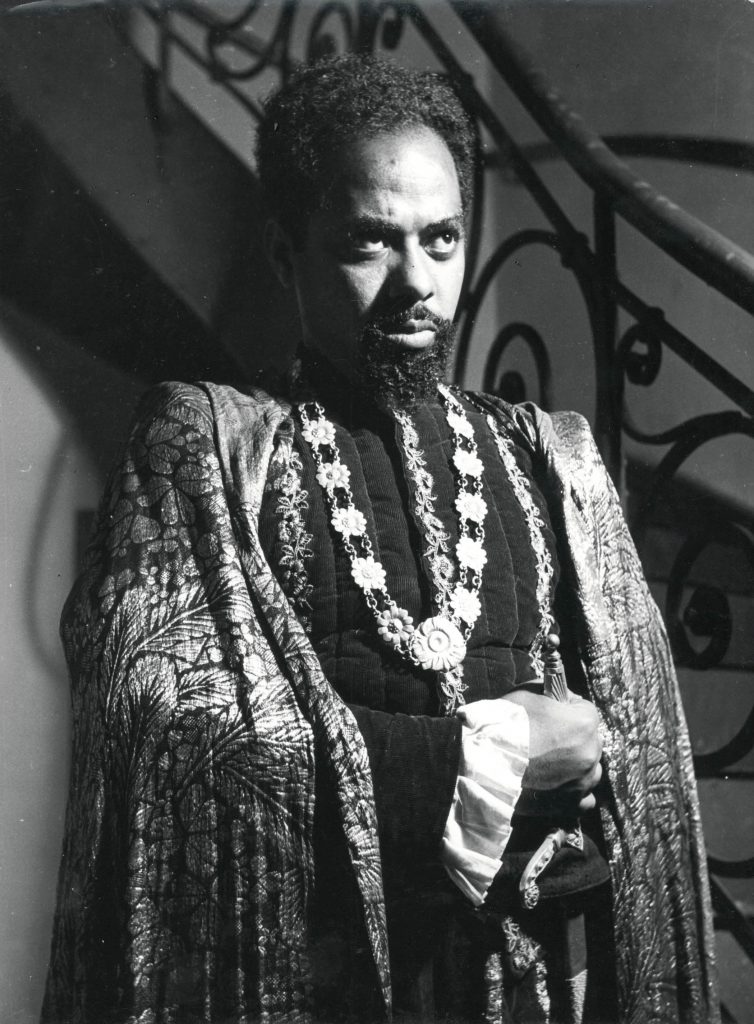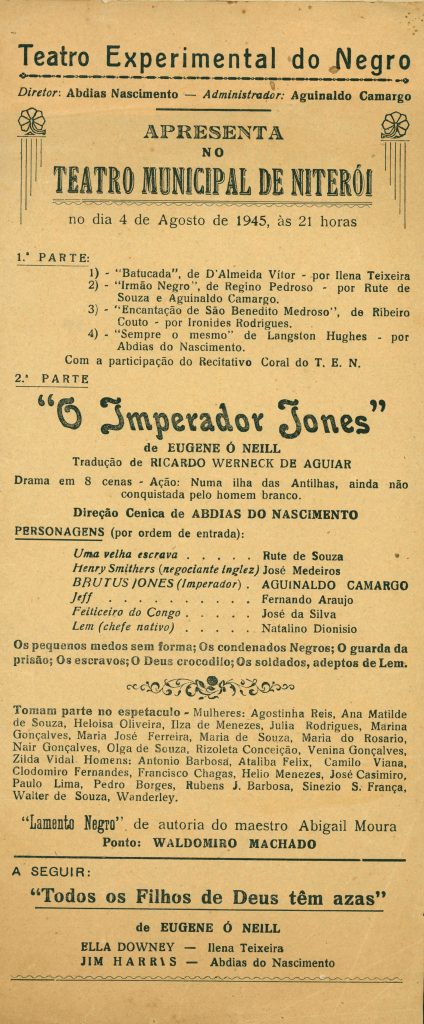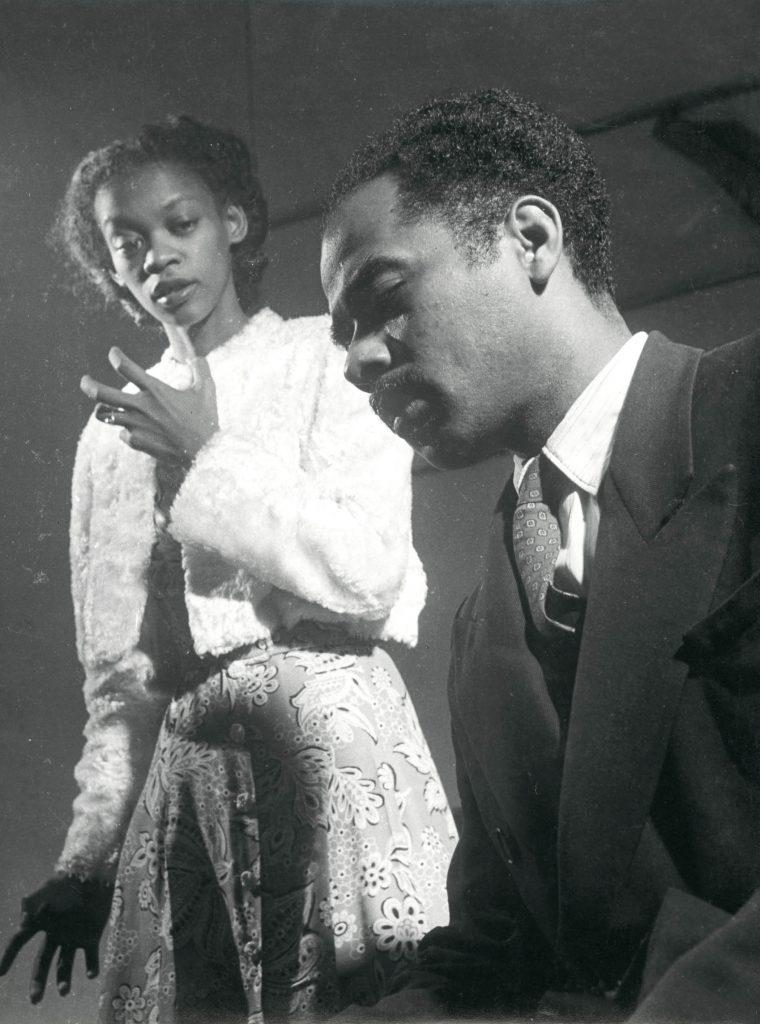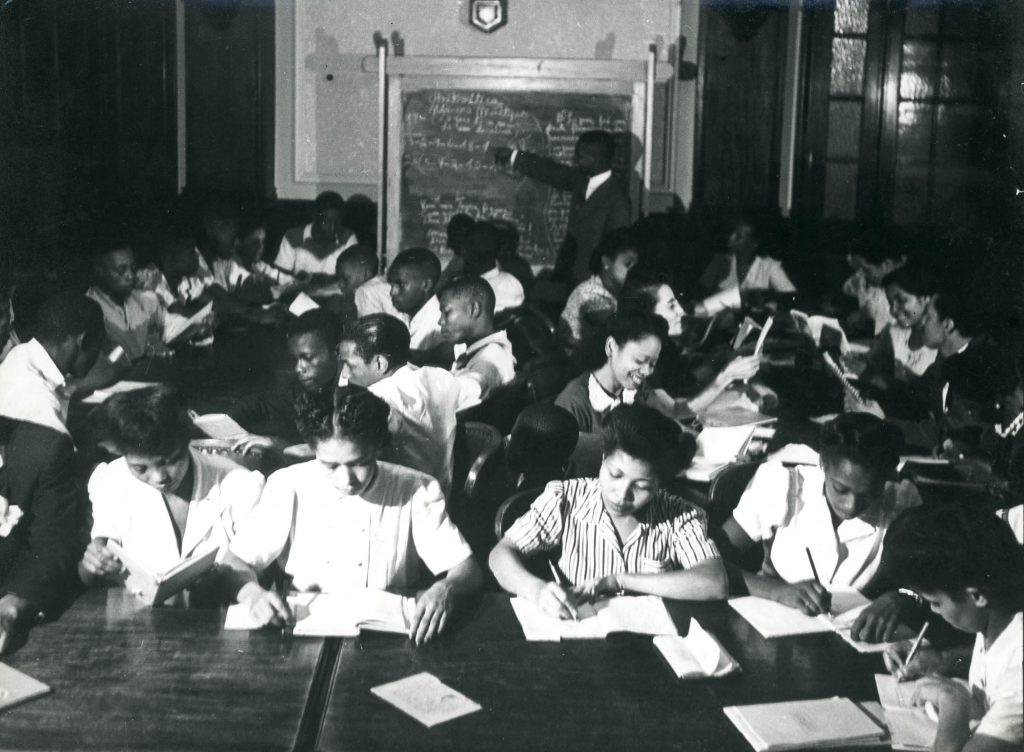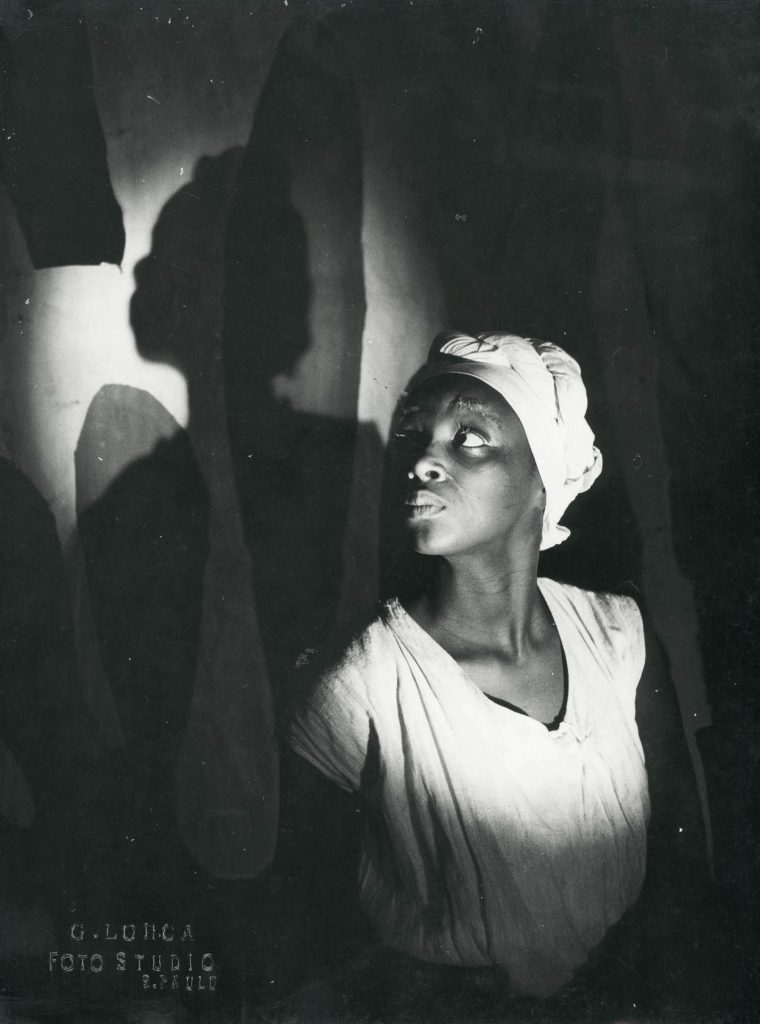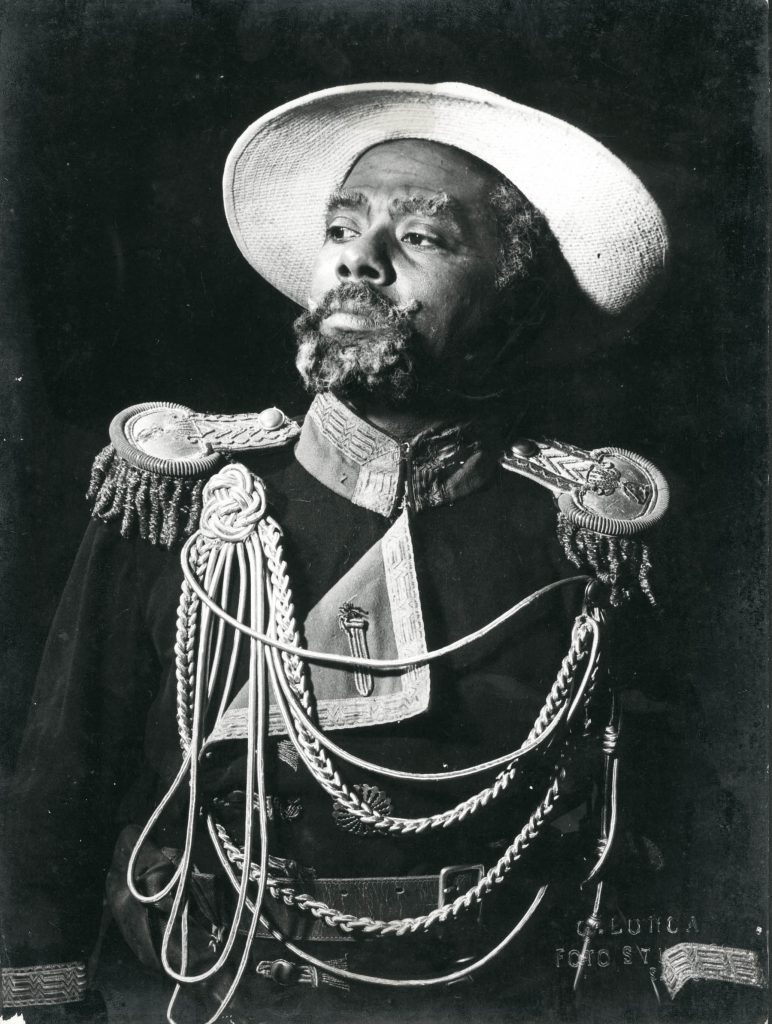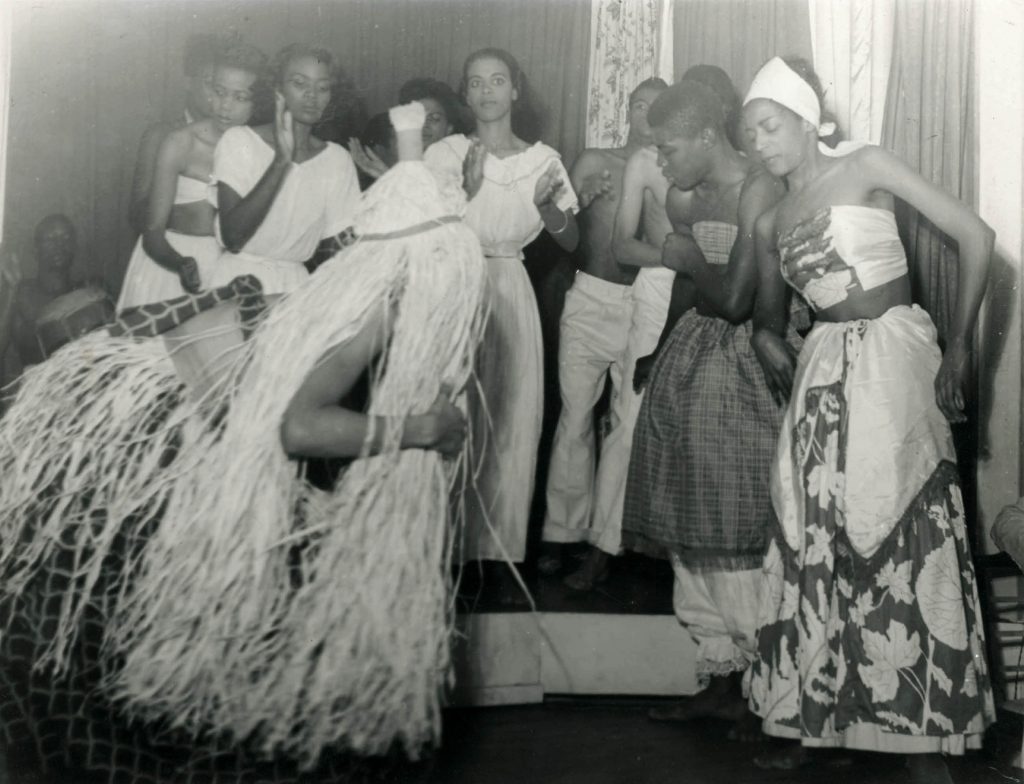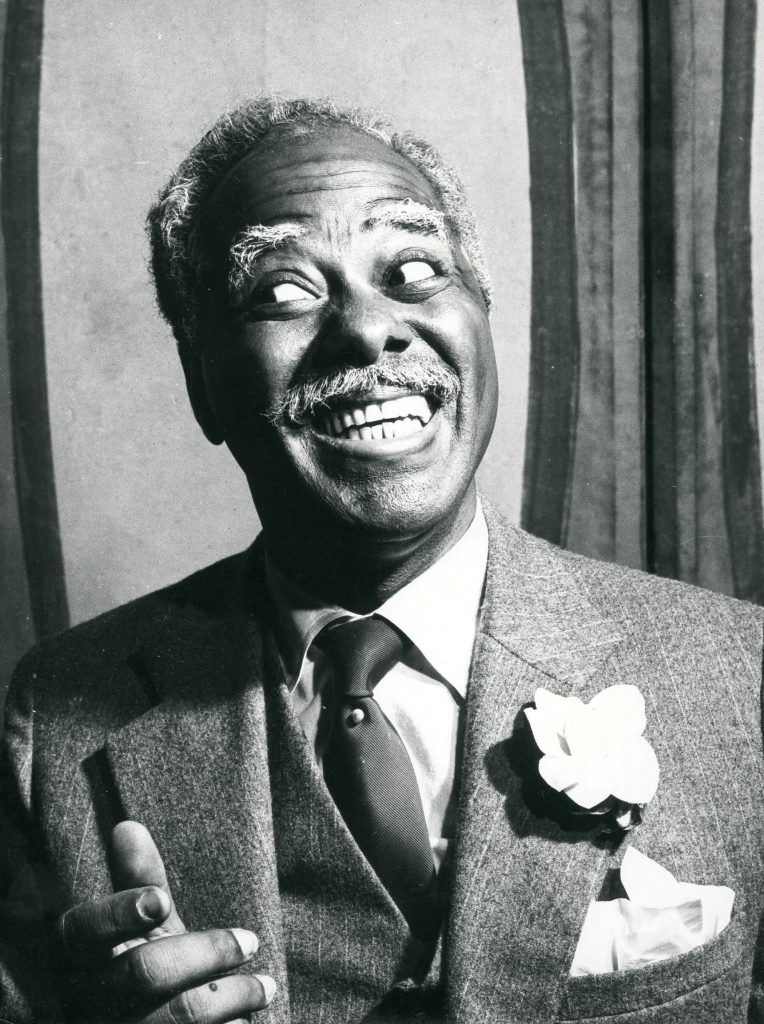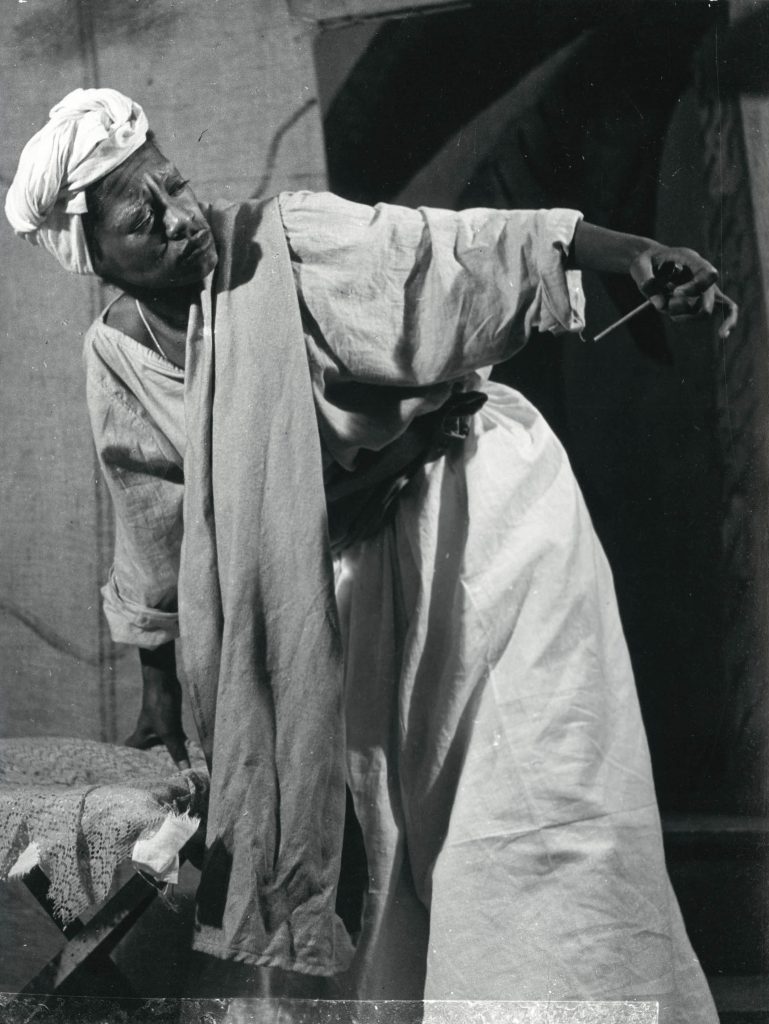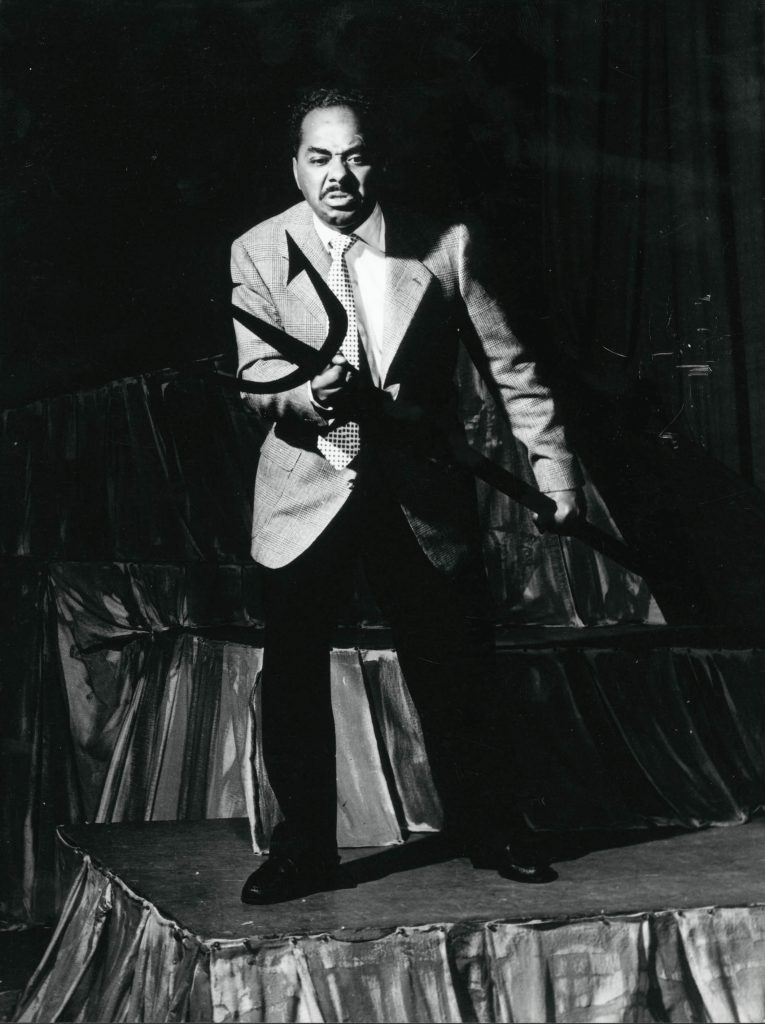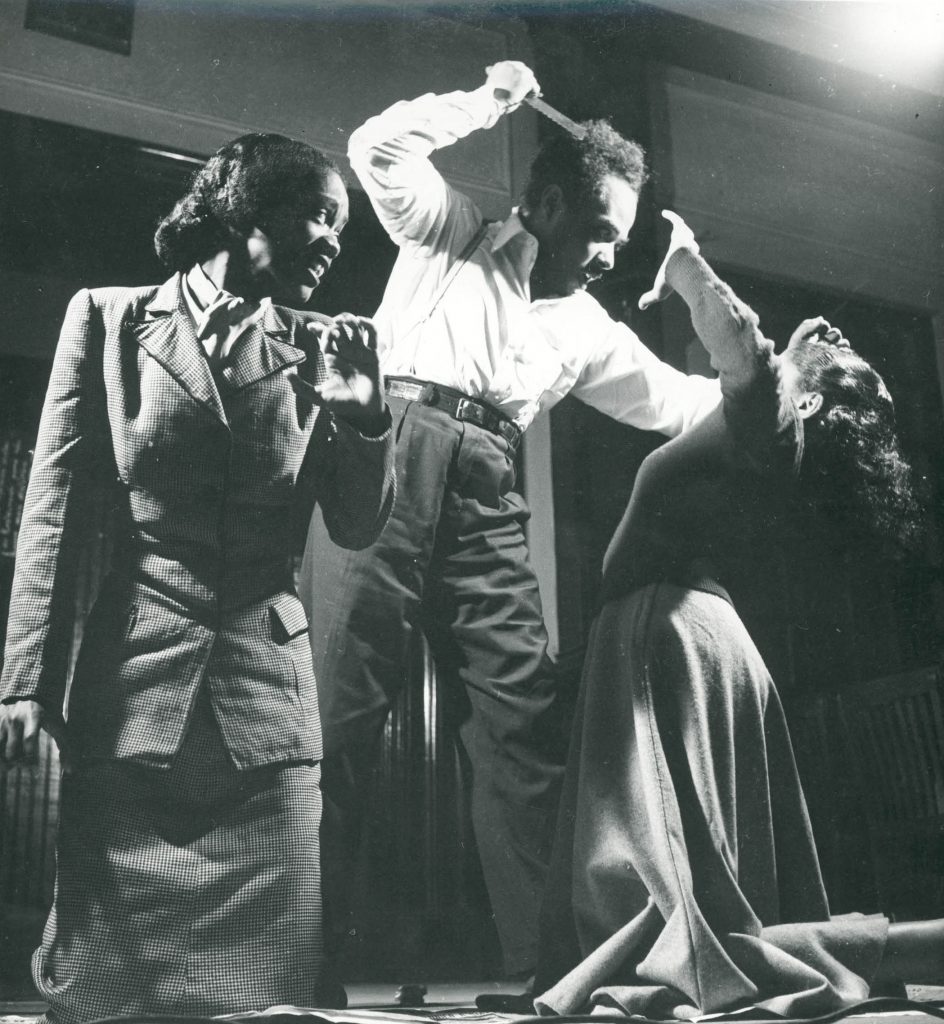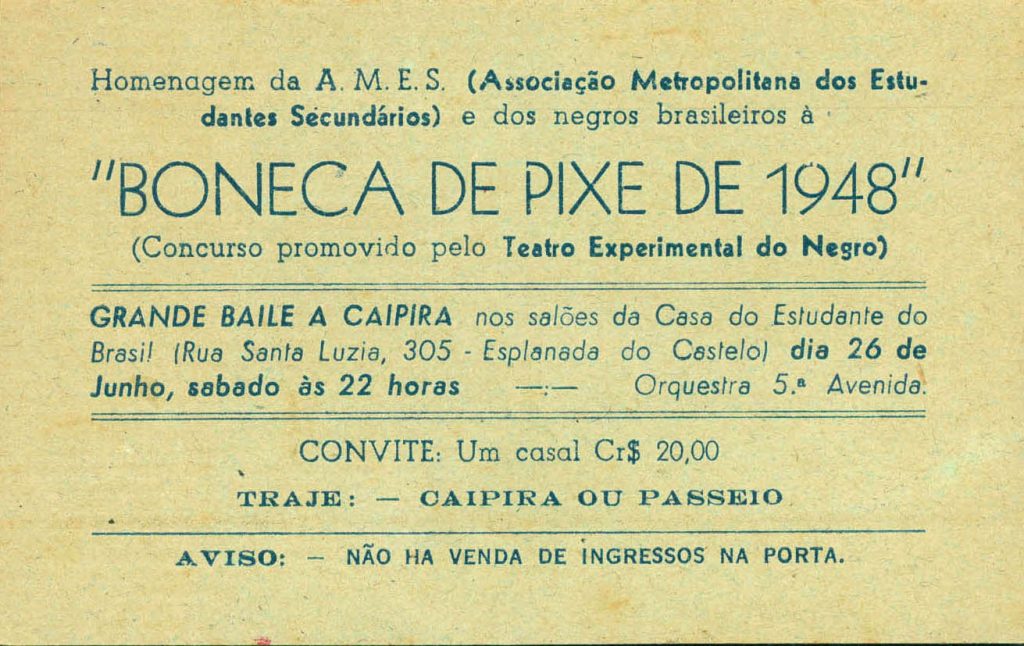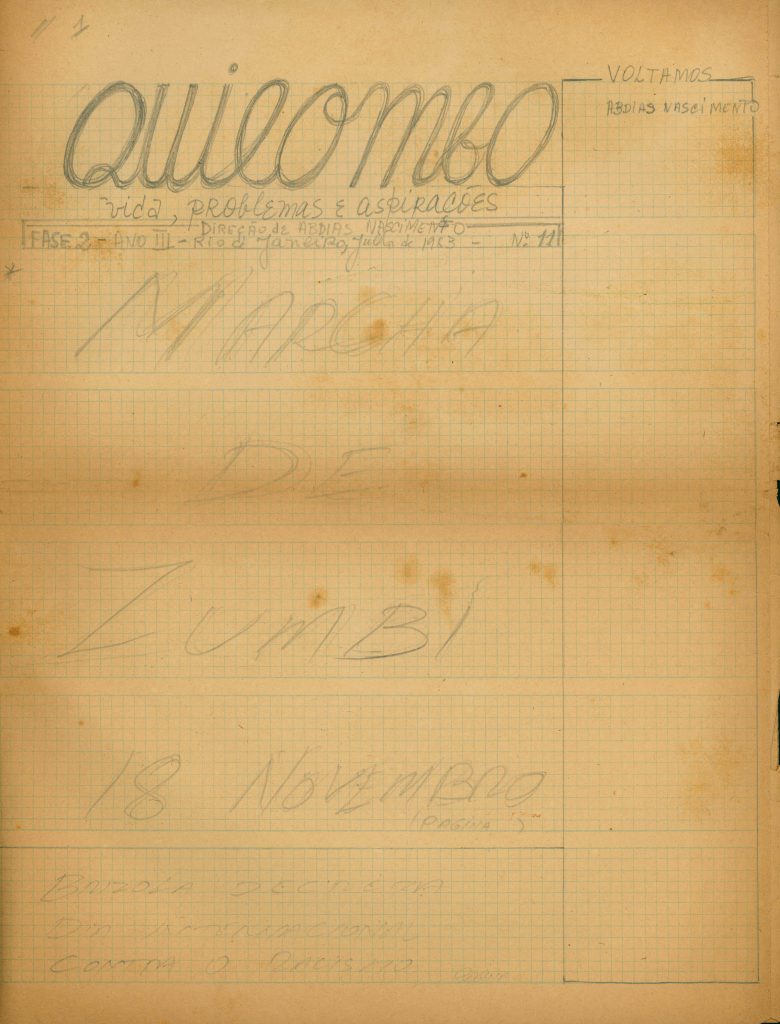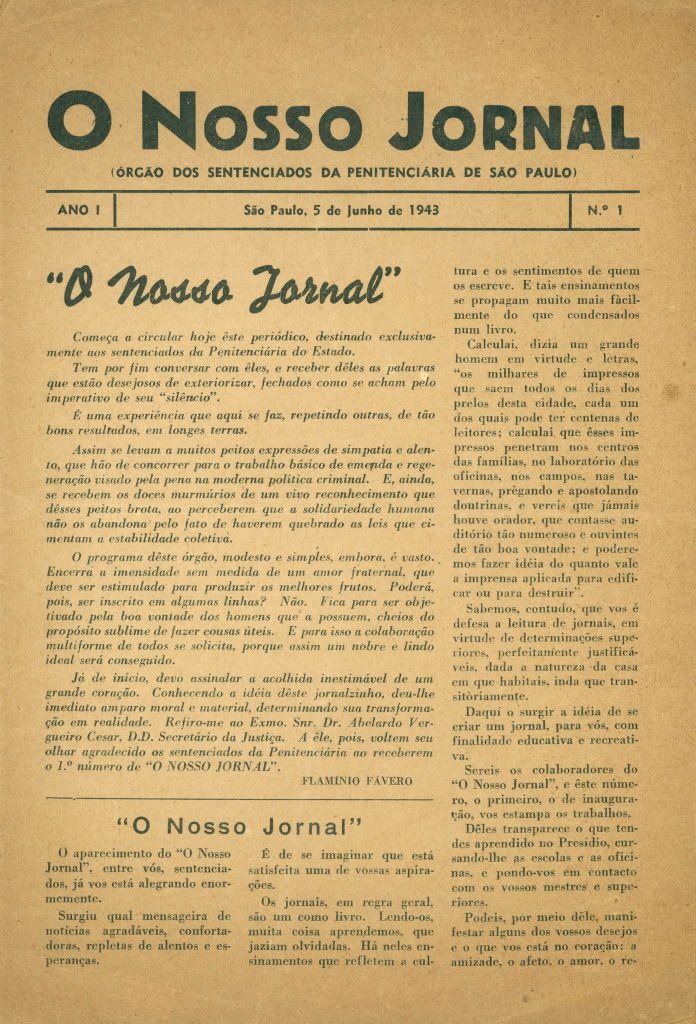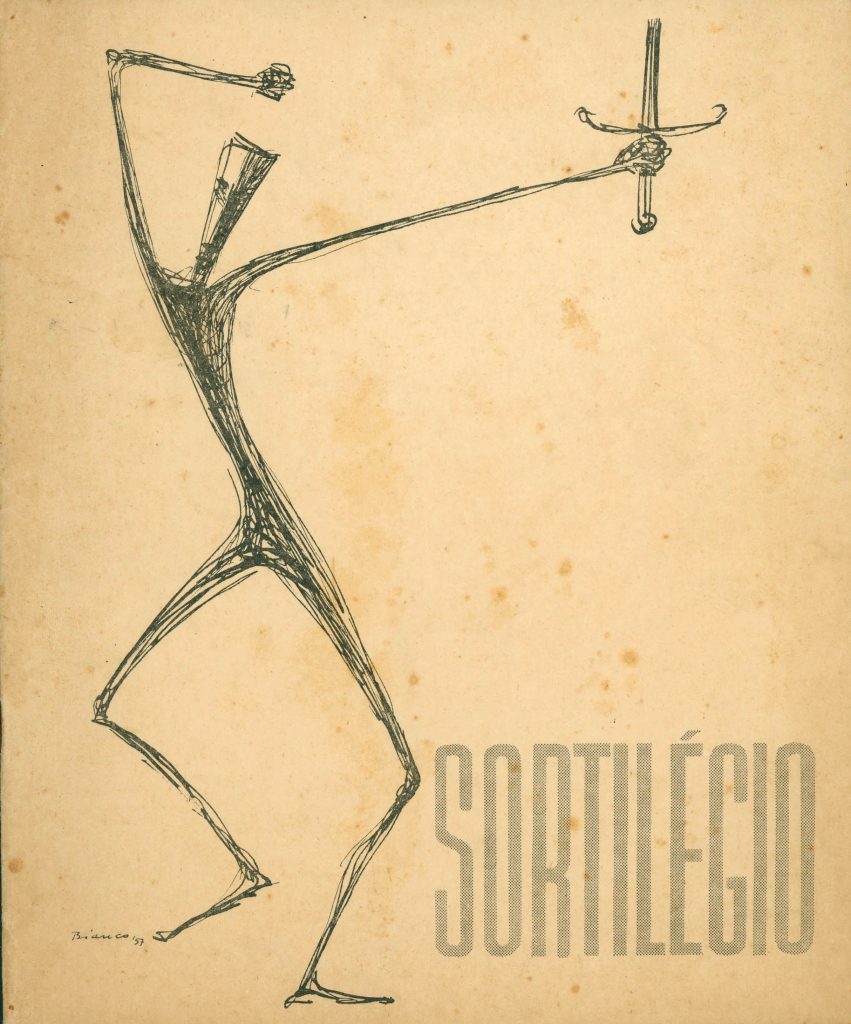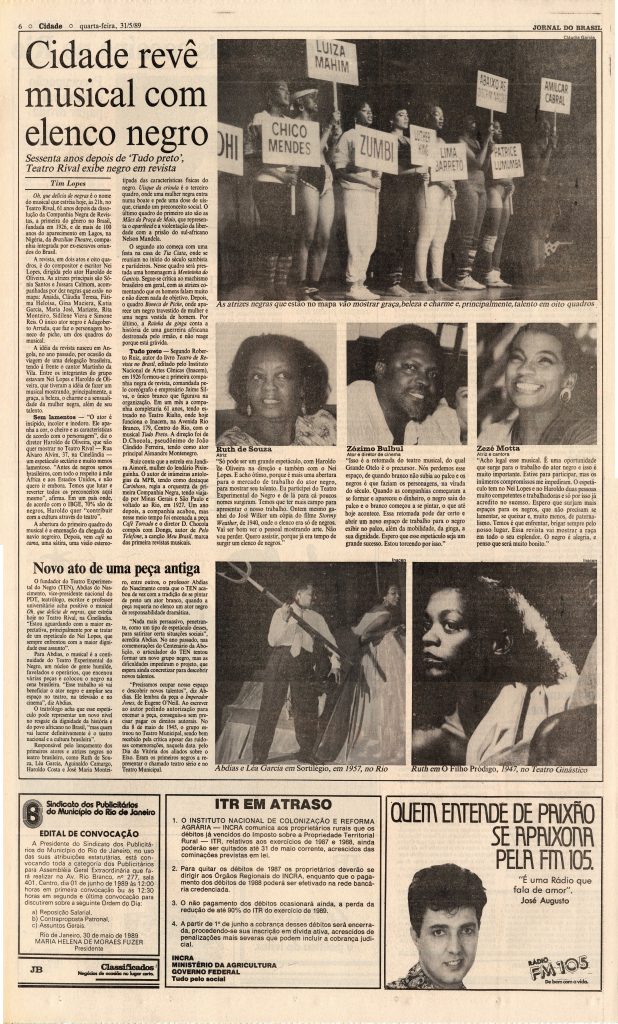The Emperor Jones
It was the view of this play put on in Lima, Peru, with a cast formed by white actors with their faces painted black, that made Abdias Nascimento start thinking about a group that would ultimately become the Black Experimental Theater. Written by Eugene O’Neill (1888-1953), the play was staged at TEN’s premiere at the Theatro Municipal of Rio de Janeiro in 1945 directed by Abdias.
Othello
The classic of English playwright William Shakespeare (1564-1616) was staged as a sketch in December 1946 as part of the program of TEN’s Second Anniversary Festival. The protagonists were Abdias (Othello) and Cacilda Becker (Desdemona).
The Dreamy Kid
The program of TEN’s Second Anniversary Festival also included the play The Dreamy Kid, written by Eugene O’Neill (1888-1953) and featuring Abdias in the leading role. Also in the cast were actresses Ruth de Souza, Marina Gonçalves, and Ilena Teixeira. Directed by Willy Keller.
All God’s Chillun Got Wings
Owing to the success of the first staging of a work by Eugene O’Neill (1888-1953), the TEN decided to bet on another play of this author. Then in July 1946 All God’s Chillun Got Wings premiered. Directed by Aguinaldo Camargo (1918-1952).
O Filho Pródigo [The Prodigal Son]
The first play written especially for the TEN, O Filho Pródigo [The Prodigal Son], signed by Lúcio Cardoso (1913-1968), was a free adaptation of the homonymic biblical parable. It was the first play written by a Brazilian playwright brought to the stage by the TEN and it was performed in December 1947 (set design by Santa Rosa and costume design by Nadir de Andrade), May 1953, and July 1955 (with set and costume designs by Anízio Medeiros).
Castro Alves Recital
Held on March 31, 1947 at Teatro Fênix, in Rio de Janeiro, the recital was directed by Abdias Nascimento, set design by Santa Rosa and musical collaboration of Gentil Puget and Abigail Moura. Among the artists who performed in varying numbers were Ruth de Souza, Marina Gonçalves, Aguinaldo Camargo, and Neusa Paladino.
Terras do Sem Fim [Endless Lands]
In August 1947, the TEN staged Terras do sem Fim [Endless Lands] in collaboration with Os Comediantes. Written by Jorge Amado (1912-2001), the play was adapted by actor Graça Mello (1914-1979), and was directed by Polish Zygmunt Turkov (1896-1970) and had set design by Santa Rosa.
Aruanda
Playing from December 23, 1948 to January 2, 1949, Aruanda, by Joaquim Ribeiro, put together dance, poetry and singing to talk about the coexistence of the Afro-Brazilian gods with mortals. The staging caused the appearance of Brasiliana, a group formed by dancers, singers, and percussionists which toured Europe for nearly ten years.
A Família e a Festa na Roça [The Family and the Party on the Farm]
In partnership with the Serviço Nacional de Teatro [National Theater Service], in December 1948 the TEN staged A Família e a Festa na Roça [The Family and the Party on the Farm], a play by Martins Pena. Directed by Dulcina de Moraes, who was also working in this project, plus set and costume designs by Santa Rosa, the play featured in the cast Abdias Nascimento, Ruth de Souza, Bibi Ferreira, and Jardel Filho, among others.
Filhos de Santo [Sons of the Saint]
Staged in March and April 1949 in two theaters – Ginástico and Regina, in Rio de Janeiro –, written by José Morais de Pinheiro and directed by Abdias, the play tells the story of workers from Recife, state of Pernambuco, between candomblé and a police chase. Set design by Santa Rosa.
Calígula [Caligula]
Based on the text by Algerian philosopher Albert Camus (1913-1960), the show failed to raise the funds needed. Hence, only the 1st act was performed once to the author at Teatro Ginástico, in 1949, followed by a couple of songs played by the Orquestra Afro-Brasileira [Afro-Brazilian Orchestra] and dance performed by Mercedes Batista. Directed by Abdias; costume and set designs by Santa Rosa.
Rhapsody in Black
Written and directed by Abdias, this play staged in 1952 marked the “debut of two noteworthy artists,” according to the director: dancer Mercedes Batista and actress Léa Garcia. The show was put on in July, October and November of that year with different choreographers and composers to each edition.
O’Neill Festival
Held in 1954 at Teatro Dulcina, in Rio de Janeiro, it comprises the performance of scenes from plays by Eugene O’Neill (1888-1953). On stage, the audience could see All God’s Chillun Got Wings, Where the Cross is Made, and The Emperor Jones – the latter is the TEN’s debut play. Abdias directed and acted.
Orfeu da Conceição [Orpheus of the Conception]
Written by Vinicius de Moraes, with music composed by Tom Jobim (and this is the first collaboration between the two), set design by Oscar Niemeyer, and a cast composed of Abdias and other actors from the TEN, the play – which combines Greek mythology and the imaginary of the slums in Rio – was put on in 1956.
Perdoa-me por Me Traíres [Forgive Me for Cuckolding Me]
Written by playwright Nelson Rodrigues, the play was staged in 1957 featuring Abdias and Nelson Rodrigues himself.
Sortilege: Black Mystery
This text by Abdias discusses the search for an identity by following the story of a black man who sees himself distant from both the European and the African cultures. It was staged at the Theatro Municipal of Rio de Janeiro in 1957.
